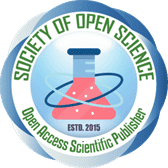Water Quality Assessment of Some Well Water in Erbil City by Quality index, Kurdistan Region-Iraq
Keywords:
Well water, WQI, Erbil, Kurdistan, IraqAbstract
The present work is aimed at assessing the water quality index (WQI) for the six well in Erbil city. This has been determined by collecting groundwater samples and subjecting the samples to a comprehensive physicochemical analysis. For calculating the WQI, the following 8 parameters have been considered: EC, TDS, pH, Alkalinity, Hardness, NO3, Ca+2, Mg+2. The WQI for these samples ranges from 24.825 in Rizgari well No. 1 to 84.048 in Azadi well No. 8. The results indicated that water quality of wells (Azadi 8, Ankawa 9, Ronaky 1 and Badawa 13) remains Good and Tayrawa well No. 1 remains excellent in the years 2004, 2005, and 2012. But well of Rizgari No. 1 changed from good in year 2004 and to excellent in 2012.
Downloads
References
Todd, D.K. (1959). Groundwater hydrology. John Wiley and Sons, Inc., New York, 336 pp.
Nabi, A.Q. (2005). Limnological and bacteriological studies on some wells within Hawler city, Kurdistan region-Iraq. M.Sc. Thesis, University of Salahaddin.
Toma, J.J. (2013). Evaluating Raw and treated Water quality of the Greater Zab River within an Erbil city by index analysis. International Journal of Emerging Technologies in Computational and Applied Sciences, 3: 147-154.
Toma, J.J. (2006). Physico-chemical and Bacteriological Analysis for Ground Water Wells in Ainkawa, Erbil, Iraq. Proc. 4th Int. Con. Biol. Sci. (Botany), Egypt, 147–152 p.
Chauhan, A. & Singh, S. (2010). Evaluation of Ganga Water for Drinking Purpose by Water Quality Index at Rishikesh Uttarakhand, India. Report Opinion, 2(9): 53–61.
Toma, J.J. (2006). Study on Some of Physico-chemical Properties in Shaqlawa Groundwater (some wells) Erbil, Iraq. Zanco, Journal of pure and Applied Sciences, 18(3): 9-18.
Ramakrishnaiah, C.R., Sadashivaiah, C. & Ranganna, G. (2009). Assessment of Water Quality Index for the Groundwater in Tumkur Taluk, Karnataka State, India. E-J. Chem., 6(2): 523-530. https://doi.org/10.1155/2009/757424.
Rzóska, J. (1980). Euphrates and Tigris, Mesopotamian Ecology and Destiny. Series Volume: 38. Monographiae Biologicae, Dr. W. Junk bv Publishers, The Hague, Springer Netherlands, 122 pp.
Zohary, M. (1950). The Flora of Iraq and its Phytogeographical Subdivision. Directorate-General of Agriculture, Bulletin no. 31. Iraq. 201 pp.
APHA (1998). Standard Methods for the Examination of Water and Wastewater. 20th Edition, American Public Health Association, Washington, DC.
Padmanabha, B. & Belagali, S.L. (2005). Comparative study on the water quality index of four lakes in the Mysore city. Indian J. Environ. Prot., 25(10): 873-876.
Tiwari, T.N., Das, S.C. & Bose, P.K. (1986). Weighed geometric Water Quality Index for river Jhelum in Kashmir. Journal of M.A.C.T., 19: 33-41.
Wetzel, R.G. (1975). Limnology. W.B. Saunders Co., Philadelphia, 743 pp.
US EPA (2004). Drinking Water Standards and Health Advisories. EPA 822-R-04-005. Office of Water, U.S. Environmental Protection Agency. Washington, DC.
WHO (2004). Guidelines for drinking-water quality, 3rd edition: Volume 1 – Recommendations. World Health Organization, Geneva.
Bartram, J. & Ballance, R. (eds) (1996). Water quality monitoring: a practical guide to the design and implementation of freshwater quality studies and monitoring programs. WHO & UNEP. E & FN Spon, Chapman & Hall, London.
Downloads
Published
How to Cite
Issue
Section
License
Copyright (c) 2013 The author(s) retains the copyright of this article.

This work is licensed under a Creative Commons Attribution 4.0 International License.
This is an open access article distributed under the Creative Commons Attribution License which permits unrestricted use, distribution, and reproduction in any medium, provided the original work is properly cited.





